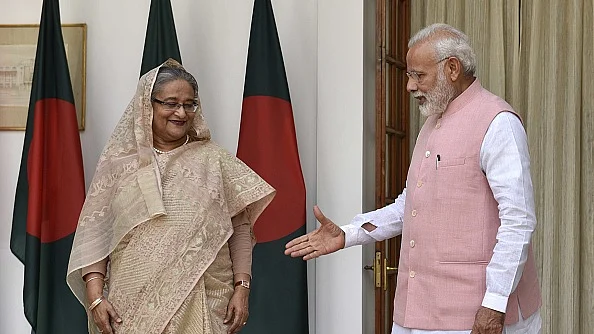Recommended Sunday Reading-April 23
The choicest of Sunday reads

Beijing in India’s backyard
The Indian Union cannot match the depth of Chinese pockets by a long shot. Neither has it been able to deliver to Dhaka the one thing that Beijing cannot deliver! That is, a comprehensive water-sharing deal of the river Teesta, which flows from West Bengal to Bangladesh, across the Indo-Bangladesh border. For that, Delhi has to get Kolkata on board. To give Dhaka a deal, Delhi has to offer a deal first to Kolkata. This will entail compensation for West Bengal, that stands to lose from a Teesta deal. Till now, Delhi has not promised any such compensation to West Bengal. So, for the foreseeable future, there is no deal. Thus, Delhi has to fall back upon clichés like “civilisational and cultural ties”, which really have no place in hard-nosed international relations. In Pakistan’s The Friday Times.
Will France vote today for a ‘Revolution’?
The French are notorious for complaining, and for their divisiveness. “How is it possible to govern a country that produces 246 varieties of cheese?” De Gaulle once asked. Brooding is a national sport. Surveys have shown the French are more pessimistic than Iraqis, or even Afghans for that matter . It’s hard to square this with the living standards of the world’s fifth largest economy, a country with high social protection and well-developed infrastructure, which has known 70 years of peace. But these are difficult, mind-boggling times. If comments from people in France’s south-west are anything to go by, then populist, extremist and even conspiratorial views are likely to define much of what will happen on Sunday and beyond. In The Guardian.
China plans to turn Tibet into the world’s largest national park
And unlike the unpopulated park in Greenland, the Tibetan plateau is home to cities, towns and nomadic tribes, with native Tibetan population estimated at 7.8 million. The main purpose of a national park is conservation, which would limit a wide range of economic activities and might necessitate the relocation of some residents. “Some people will lose their jobs. The lives of many may be affected,” said Professor Yi Chaolu, another researcher with the Institute of Tibetan Plateau Research. “To establish the park or not may go beyond science. It is also a political issue.” In South China Morning Post.
The brotherhood of the ‘Balti’
“Bucket-baths were best in summer. Cold water wasn't rationed so I could spread the bath out over several refills and lota by lota, sluice the heat away. The heat transferred was so considerable that I left the bathroom warmer than I entered it, my ears glowing with coolth. But even in summer bathing wasn't as nice as it could have been. The lesser problem was the soap. This was a brick-red block called Lifebuoy that smelt like raw commode cleaner and wore badly: it shrank and dried into a fissured lump disfigured by grey-black cracks. It was unpleasant but easily avoided; I stopped using soap (for years) and nothing bad happened.” In The Telegraph.
Spectacular account & pictures of a hidden desert city
In 106 AD, the Nabatean Empire was annexed by the Romans, a development accompanied by Red Sea routes overtaking land trading routes. Nabatean cities were no longer centres of trade, and so began their decline and ultimate abandonment. Tucked away in the desert, today Madain Saleh is deserted, silent and stunningly well-preserved. Much of the city still lies under layers of sand. In BBC.com.
Follow us on: Facebook, Twitter, Google News, Instagram
Join our official telegram channel (@nationalherald) and stay updated with the latest headlines